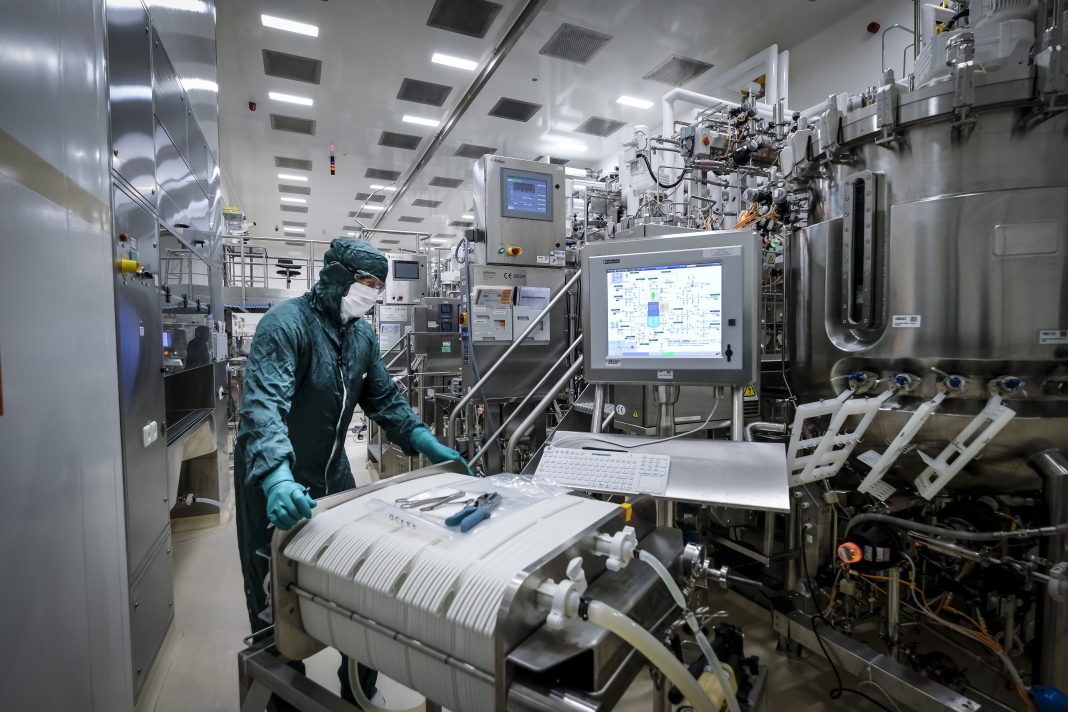
GlaxoSmithKline (GSK) has agreed to acquire Affinivax for up to $3.3 billion, the companies said today, in a deal designed to strengthen the buyer’s vaccine portfolio with jabs based on Affinivax’s technology.
GSK is counting on Affinivax to help it compete better with Pfizer’s blockbuster pneumococcal vaccine franchise, marketed as Prevnar®, and shore up its vaccine offerings as it prepares to spin off its consumer products joint venture with Pfizer.
Affinivax’s vaccines are based on its Multiple Antigen Presenting System (MAPS™), a technology designed to support higher valency than conventional conjugation technologies. MAPS is intended to enable broader coverage against prevalent pneumococcal serotypes and potentially create higher immunogenicity than current vaccines, through precise, high-affinity binding of disease-relevant polysaccharides to disease-relevant protein antigens in a single vaccine.
According to GSK and Affinivax, immunization with the resulting polysaccharide-protein complexes induces a broad and potentially protective B-cell (antibody) response to the polysaccharides and a separate B-cell and T-cell immune response to the proteins. As a result, the companies say, MAPS can be applied to targeting a broad range of infectious diseases.
The most advanced candidates within Affinivax’s novel class of vaccines are its next-generation pneumococcal vaccines. Affinivax’s lead vaccine candidate, AFX3772, includes 24 pneumococcal polysaccharides plus two conserved pneumococcal proteins, compared to up to 20 serotypes in currently approved vaccines. The company is also developing a 30-plus valent pneumococcal candidate vaccine that is in preclinical phases.
In adult Phase I/II clinical trials, AFX3772 showed positive immune responses compared to current standard of care, and was well tolerated in participants and demonstrated. The FDA granted Breakthrough Therapy designation last year for AFX3772 to prevent S. pneumoniae invasive disease and pneumonia in adults 50 years and above. Phase III is expected to start in the short term.
Phase I/II clinical trials to assess the use of the vaccine in children are planned to begin later this year.
While initial use of the MAPS technology has been directed primarily toward preventing pneumococcal disease, the technology has also been demonstrated for additional infectious disease pathogens, including those that cause hospital-acquired infections, according to Affinivax and GSK.
“The proposed acquisition further strengthens our vaccines R&D pipeline, provides access to a new, potentially disruptive technology, and broadens GSK’s existing scientific footprint in the Boston area,” Hal Barron, MD, GSK’s Chief Scientific Officer and President, R&D, said in a statement.
GSK agreed to acquire all outstanding shares of Affinivax for $2.1 billion upfront and up to $1.2 billion in payments tied to achieving development milestones, to consist of two payments of $600 million.
The deal is subject to customary closing conditions, including the expiration or early termination of the waiting period under the Hart-Scott-Rodino Anti-Trust Improvements Act of 1976. The transaction is expected to close in the third quarter.
Targeting Pfizer
GSK is looking to Affinivax’s pneumococcal vaccine portfolio to help it better compete with Pfizer.
During the first quarter, Pfizer’s Prevnar family of vaccines—which includes revenues from Prevnar 13/Prevenar 13 (pediatric and adult) and Prevnar 20 (adult)—generated $1.565 billion in revenues, up 22% from Q1 2021, due to increased retail and wholesaler stocking of Prevnar 20 for adults and government purchases of Prevnar 13 for children.
GSK, by contrast, saw sales of its Synflorix® pneumococcal vaccine tumble 21% during Q1 to £81 million (approximately $102 million), with GSK only citing lower sales outside the U.S.
For all of 2021, GSK saw sales of its Synflorix pneumococcal vaccine drop 11% year over year to £357 million (about $449 million), a decline the company has blamed on reduced demand in emerging markets (which include India, China, the Middle East and Africa).
Pfizer’s Prevnar saw total revenues drop 10% last year, but still racked up blockbuster numbers at $5.272 billion. Pfizer blamed its lower 2021 revenues on:
- A 27% decline in the U.S. primarily due to the timing of government purchases for pediatric Prevnar and disruptions to healthcare activity related to COVID-19, as well as a lower remaining unvaccinated eligible adult population
- A 24% operational decline outside the U.S. primarily due to increased adult uptake in 2020 from greater vaccine awareness for respiratory illnesses.
Affinivax is GSK’s second acquisition in six weeks, following the pharma giant’s purchase of Sierra Oncology for $1.9 billion, leading to a 39% one-day surge in Sierra’s stock. GSK seized the opportunity to buy Sierra three months after it reported positive topline data for its lead candidate momelotinib from the Phase III MOMENTUM trial. Sierra is expected to file a New Drug Application for momelotinib this year.
The deals come as GSK looks to bolster its vaccine and drug portfolios ahead of spinning out its consumer products joint venture with Pfizer into a new entity to be called Haleon. The spin out is expected to occur in July.
Also later this year, Barron is set to leave GSK to become CEO of Altos Labs™, a startup launching with $3 billion in capital and the ambitious aim of reversing disease and aging processes that lead to injury, and disabilities through cellular rejuvenation programming.
GSK reaffirmed its full-year investor guidance for 2022, consisting of sales growth for the surviving company or “new GSK” of 5–7% at constant exchange rates (CER) and adjusted operating profit of 12–14% at CER. The company also reaffirmed its medium-term outlook for 2021-2026 of more than 5% sales growth and a 10% adjusted operating profit compound annual growth rate at CER.

